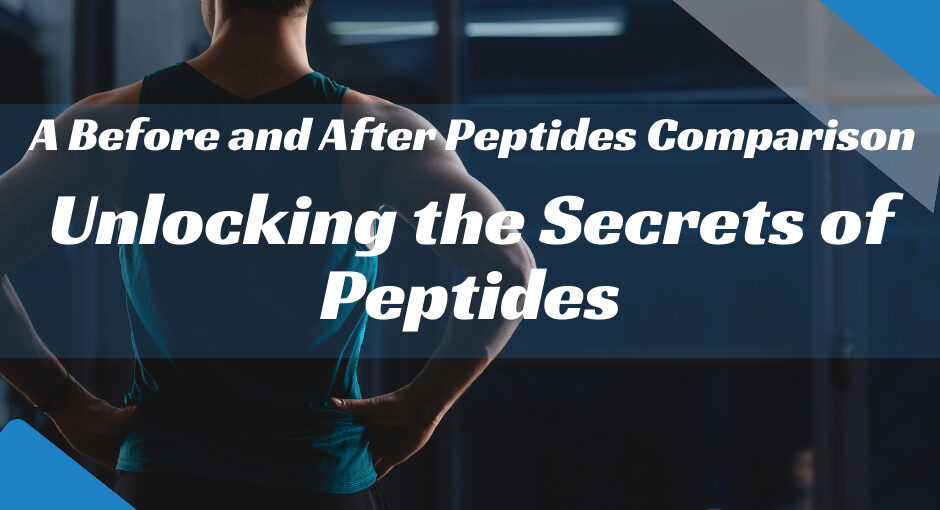Understanding Peptides
How Peptides Work?
Peptides are short chains of amino acids that play crucial roles in various biological processes. Understanding how peptides work can help you appreciate their effectiveness even more in skincare.
Mechanism of Action
How, then, do these very small chemicals make our skin change so much? The way it works is very interesting! Peptides send signals to different parts of the body that control important processes. To sum up quickly, here it is:
Peptides are very important for cell communication because they send messages to cells that start or speed up processes like making collagen, healing wounds, and fixing skin. Some peptides cause fibroblasts to make more collagen when they are applied to the skin. Collagen is needed to keep the skin flexible and strong. Furthermore, some peptides can improve the skin’s capacity to hold onto water, making it look full and hydrated.
Example from real life: If you use a serum with peptides, you may notice a change in the texture and tone of your skin within a few weeks. Imagine going from having dull, tired skin to having skin that looks brighter and younger. That’s how peptides work!
Benefits for Skin Health
The benefits of peptides for your skin are extensive. Here’s what you can look forward to:
- Anti-Aging Effects: Peptides can help diminish the appearance of fine lines by promoting collagen production.
- Enhanced Elasticity: By encouraging new skin cell growth and improving moisture retention, peptides contribute to a more youthful bounce in your skin.
- Healing Properties: Peptides can speed up the healing process of minor skin irritations and provide soothing effects.
Popular Peptides to Consider:
- Matrixyl: Known for its collagen-boosting abilities and fine-line reduction.
- Palmitoyl Tripeptide-5: Helps improve skin texture and firmness by stimulating collagen synthesis.
Incorporating peptides into your skincare regimen creates a visible transformation. Many users often report their own personal “before and after” experiences, showcasing the incredible potential of these small chains of amino acids. As you continue exploring the world of peptides, remember that these powerhouses are paving the way for healthier, more radiant skin.
Types of Peptides
Building upon our understanding of how peptides work, let’s explore the various types of peptides and how they specifically contribute to skin health. Each type plays a unique role, targeting different concerns, such as aging, hydration, or overall skin vitality.
Signal Peptides
Signal peptides are helpful messages that travel through our skin. They are very important for talking to cells about things like health, growth, and repair. You may have noticed a miraculous change in your face after using a product with peptides. It is probably because of these little miracles.
Signal peptides are known to increase the production of collagen, which is important for keeping the skin flexible and tight. They can copy the effects of peptides that the body makes naturally. Furthermore, these peptides can speed up the healing of small cuts or irritations. Signal peptides might have helped the healing process faster if you’ve ever had a small spot that went away very quickly.
Some popular signal peptides include:
- Matrixyl: Promotes collagen synthesis, addressing signs of aging.
- Pentapeptide-18: Reduces the appearance of fine lines and wrinkles.
Carrier Peptides
Allow us to discuss carrier peptides. In the world of peptides, these are like delivery trucks. They move important metals like copper to different parts of the skin, improving the overall function of the skin.
Keep in mind that carrier peptides can improve the way skin cells work by carrying important minerals and vitamins that lead to a healthier appearance. They can also help the skin heal faster and stay more hydrated. In addition, carrier peptides help the skin’s barrier, which stops water loss. You can think of your skin as a sponge. If it doesn’t get enough water, it can get flaky and dry. By strengthening the skin’s natural layer, carrier peptides ensure that it stays well-hydrated.
Some noteworthy carrier peptides include:
- Copper Peptides: Known for their skin-repairing properties and ability to calm inflammation.
- Acetyl Hexapeptide-8: Often dubbed the “Botox peptide,” it helps relax facial muscles and reduce wrinkle appearance.
By exploring these types of peptides, you can better tailor your skincare routine to address specific concerns. As you dive deeper into your skincare journey, understanding which types of peptides work best for you can lead to remarkable changes in your skin’s health and appearance.
Peptides in Anti-aging
One of the most interesting things about peptides that we are still learning about is how they can help fight age. Peptides are your new best friend if you want skin that looks young and full. Let’s look at collagen-boosting and wrinkle-reducing peptides in particular, as they can make a big difference in how you take care of your face.
Collagen-Boosting Peptides
One of the primary reasons our skin starts to show signs of aging is the decline in collagen production. That’s where collagen-boosting peptides come into play; they are like cheerleaders for your skin’s collagen production.
- Stimulation of Collagen Production: These peptides actively signal your skin cells to ramp up collagen synthesis, counteracting the natural slowdown that occurs with age. This effect can lead to a firmer, more youthful-looking complexion.
- Improved Skin Elasticity: Increased collagen levels result in better skin elasticity, which helps in minimizing sagging and gives your skin an overall lifted appearance.
Popular collagen-boosting peptides include:
- Palmitoyl Pentapeptide-4 (Matrixyl): Known for its ability to promote collagen production and reduce fine lines.
- Tripeptide-1: Works by stimulating the formation of new collagen fibers, providing a healthy boost to your skin structure.
Imagine applying a serum with these peptides and noticing a transformation in skin texture. After a few weeks, many people report a more plump feeling to their skin, almost as if a light had been turned back on!
Wrinkle-Reducing Peptides
We are going to discuss peptides that reduce wrinkles. If you’re worried about fine lines or deeper wrinkles, these peptides can help.
Some peptides that reduce wrinkles work by relaxing muscles, similar to how Botox works. They can smooth areas that people frown or squint, like the forehead or the area around the eyes. These peptides can also improve the skin’s general health and ability to retain moisture. They can make the skin look plumper, which makes wrinkles less noticeable.
Notable wrinkle-reducing peptides include:
- Acetyl Hexapeptide-8 (Argireline): Often referred to as “Botox in a jar,” this peptide can help reduce the depth of wrinkles caused by muscle movement.
- Dipeptide-2: Aids in reducing fine lines, particularly around the eye area.
Many users have shown “before and after” pictures of their skin after using these peptides, showing that they greatly reduced the depth of wrinkles and gave their skin a more youthful glow. Putting these peptides into your skincare items could be the game-changer you’ve been looking for. When you add these peptides to your routine, you’ll see that getting skin that doesn’t look old is not only possible but also very rewarding. Let peptides work their magic on your skin, and watch it change!
Conclusion
As we wrap up our exploration of peptides, it’s clear that these incredible little molecules have much more to offer than meets the eye. From their ability to boost collagen production to their remarkable effectiveness in reducing wrinkles, peptides are truly transforming the skincare landscape.
The Power of Peptides
During our conversation, we learned about how peptides work, the different kinds that are out there, and how they can help fight age. With all of this information in mind, it’s easy to see why more and more people are using skin care items with peptides. After thinking about my own experiences, I remember the first time I used a peptide serum. I wasn’t sure at first, but over the weeks, I couldn’t believe how my face changed. It got fuller and more hydrated, and I felt more alive.






